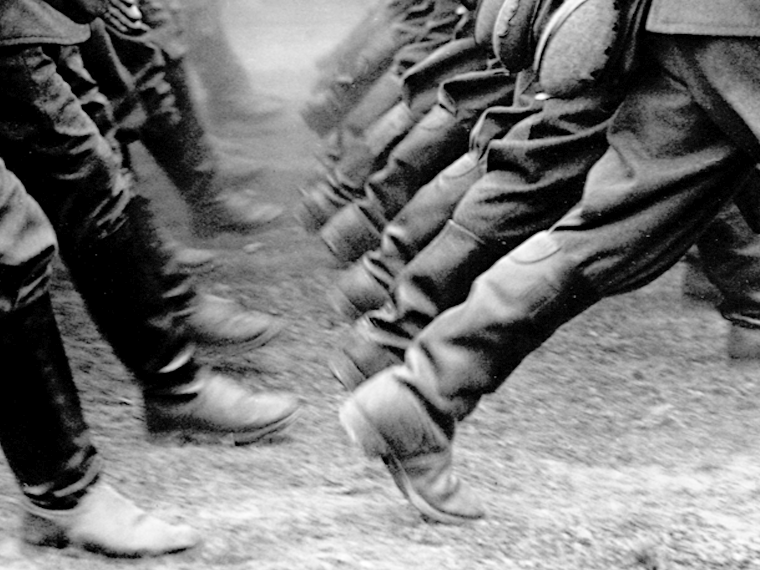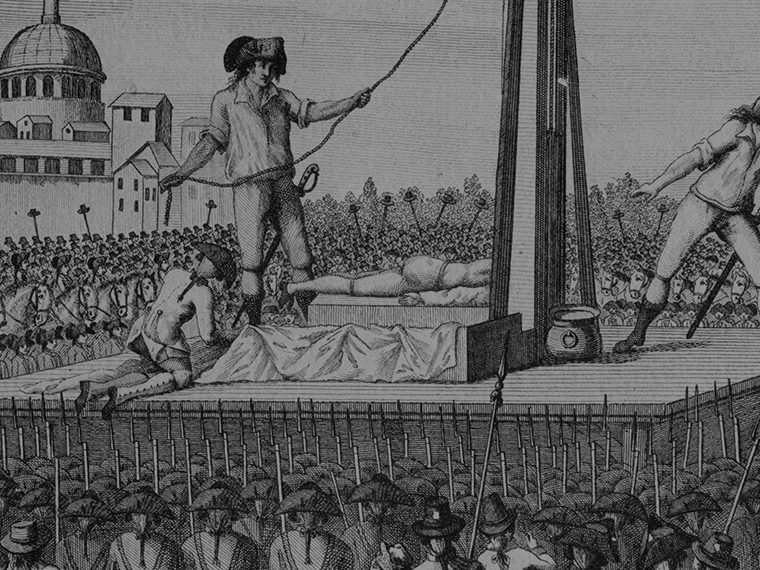Leaders of a failed 1848 revolt are followed to towns across the U.S.
Can grassroots leaders plucked from the place they rose to prominence become influential elsewhere? Or are they merely a creation of their environment?
A new study by UCLA Anderson’s Christian Dippel and University of Bristol’s Stephan Heblich seeks to shed light on that debate about the nature of leadership. The authors, in a working paper, examine a group of idealistic rebels who fled to America after the failure of their 1848 campaign to overthrow Germany’s deeply entrenched, autocratic government.
The Forty-Eighters, as they were called, provided a “natural experiment” to explore whether leaders are a product of their circumstances or the result of innate skills. Would they reemerge as leaders in their new surroundings or was their power as “influencers” limited to Germany and the circumstances leading up to the revolt?
Opt In to the Review Monthly Email Update.
What Dippel and Heblich discovered suggests the Forty-Eighters carried qualities within them — such as strong convictions and strong rhetorical skills — that allowed them to rise to leadership positions in America and ultimately play a “sizeable role” in the abolition of slavery.
Using government records and genealogical data from the United States and Germany, the team identified 500 Forty-Eighterswho emigrated to the United States. By sorting through their biographical information, including the towns where they settled and their occupations, the researchers were able to trace the arc of their influence during a pivotal moment in U.S. history.
When the Forty-Eighters arrived in the United States, the country was in the midst of the political fights that would eventually culminate in the Civil War. They gravitated to urban areas with large German communities, where they quickly rose to positions of prominence. As a group, the Forty-Eighters were better educated than previous immigrants. They also had credibility, having fought for liberty, democracy and national unity, values they shared with the newly formed Republican Party in the U.S. A number of them became journalists, which provided a platform for spreading the Republicans’ anti-slavery message.
In an editorial published in theGerman-language Abendzeitung, Forty-Eighter Friedrich Knapp made a persuasive argument linking his revolutionary activities in Germany to the Civil War. He wrote, “Slavery is not the problem of the Negro. It is the eternal conflict between a small privileged class and the great mass of the non-privileged, the eternal struggle between aristocracy and democracy.” Knapp had been accused of treason in Germany for his involvement in the liberal revolutions there and came to Baltimore in 1850.
Abraham Lincoln, who in 1860 became the first Republican elected president, was a beneficiary of the Forty-Eighters’ clout. Dippel and Heblich reference “surviving records” that indicate he relied on the transplanted revolutionaries to deliver the German vote.
The Forty-Eighters also established cultural and social organizations tied to their homeland. The most prominent of these groups was the Turnvereine,or Turner Societies, an athletic movement infused with a strong nationalistic viewpoint.
Dippel and Heblich show a strong correlation between the Forty-Eighters and the Turners. Towns with at least one Forty-Eighter in residence were 20 to 40 percent more likely to have at least one Turner Society formed between 1850 and 1862 than comparable towns with no Forty-Eighter presence.
The Turners promoted German culture and encouraged assimilation through English lessons. But they also used the group to spread the Republican message, which was particularly useful during the party’s early years. The Turners were passionate supporters of the Union cause, enlisting in such large numbers that there were “Turner Regiments.” Lincoln even used Turners as bodyguards at his first inauguration.
The study’s main outcome is enlistment for the Union Army, because a willingness to risk one’s life is the strongest possible measure of whether the Forty-Eighters truly contributed to changing hearts and minds. Dippel and Heblich collected data on the entire Union Army — 2.5 million men who served from 1861 to 1865 — and geo-located their place of residence across 4,000 towns. In towns where at least one of the German rebels settled, the Union Army enlistment rate was 20 percent higher and the desertion rate was 2 percent lower than in comparable towns without a Forty-Eighter in residence, according to the findings.
The authors haven’t concluded this research. They are investigating whether German leaders influenced only German Americans or also influenced native-born citizens and those born in countries other than Germany. Social networks in 1860s United States were quite segregated by region of origin. The authors are training a machine learning algorithm to infer birthplaces from names in the 1860 and 1870 census and then apply this algorithm to predict the birthplaces of union army soldiers. That could allow them to separately measure a town’s share of German-born, native-born and other foreign-born men who enlisted in the Union Army.
Featured Faculty
-
Christian Dippel
Assistant Professor of Economics
About the Research
Dippel, C., & Heblich, S. (2017). Leadership and Social Movements:
The Forty-Eighters in the Civil War





